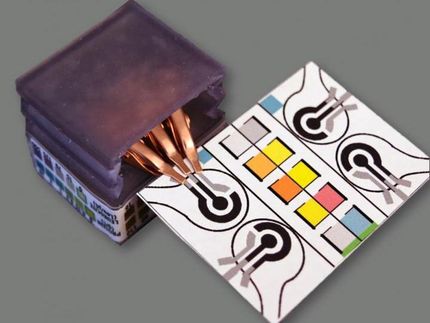Toward a faster way to diagnose stroke
Advertisement
When someone suffers from a stroke, a silent countdown begins. A fast diagnosis and treatment can mean the difference between life and death. So scientists are working on a new blood test that one day could rapidly confirm whether someone is having a stroke and what kind. Their report appears in the ACS journal Analytical Chemistry.
Steven A. Soper and colleagues note that strokes, which are the third leading cause of death and disability in the United States, have two possible causes. In ischemic strokes, a clot stops blood flow in a part of the brain. In hemorrhagic stroke, a blood vessel in the brain ruptures. Both can lead to similar symptoms, such as numbness on one side of the body, sudden weakness and headache. Current diagnostic tests can't tell between these two types. But treatment, ideally within three hours of onset, depends on the kind of stroke a person is having. Soper's collaborator, Alison Baird, who is at SUNY Downstate Stroke Center, found clues — or biomarkers — in the blood that can suggest the stroke type and assist in determining the course of proper treatment. Soper's team sought a way to detect those clues quickly.
They built a device that can process whole blood and isolate genetic material for two potential stroke biomarkers within minutes. Keeping in mind that identifying more biomarkers could aid in diagnosis, they designed their device so it can analyze a total of four biomarkers at the same time.
Most read news
Organizations
Other news from the department science

Get the life science industry in your inbox
By submitting this form you agree that LUMITOS AG will send you the newsletter(s) selected above by email. Your data will not be passed on to third parties. Your data will be stored and processed in accordance with our data protection regulations. LUMITOS may contact you by email for the purpose of advertising or market and opinion surveys. You can revoke your consent at any time without giving reasons to LUMITOS AG, Ernst-Augustin-Str. 2, 12489 Berlin, Germany or by e-mail at revoke@lumitos.com with effect for the future. In addition, each email contains a link to unsubscribe from the corresponding newsletter.





















































